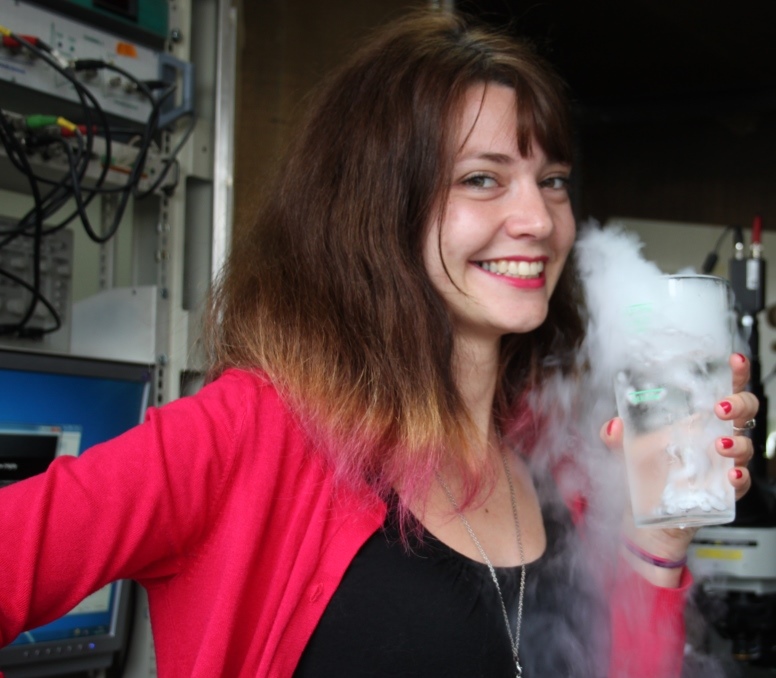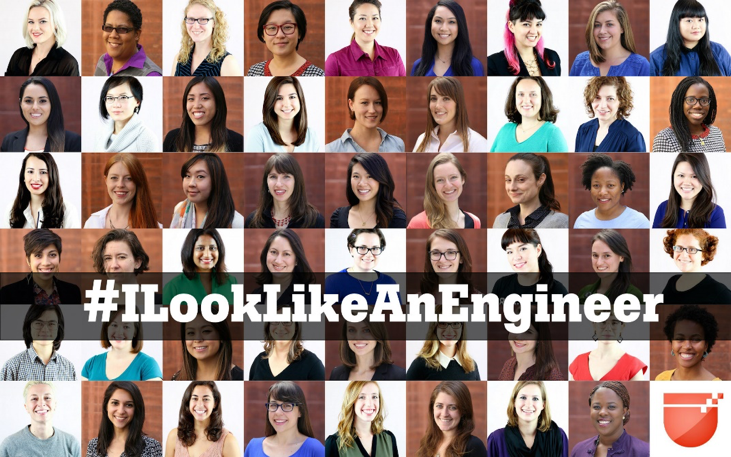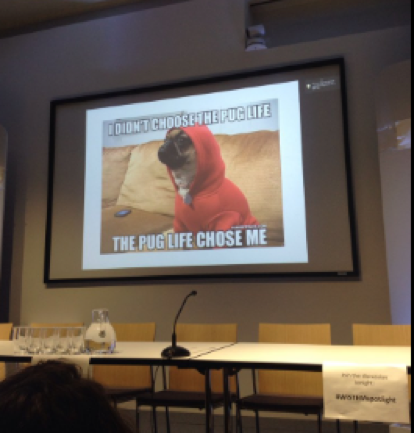Subscribe to our newsletter
Digital Science’s Ada Lovelace Day Celebrations – An Inspiring Event with Practical Take-homes #WiSTEMspotlight
 Elodie Chabrol is a researcher in neuroscience at UCL London and the French director of Pint of Science. She did her PhD on Epilepsy in Paris and came to London for two years…six years ago.
Elodie Chabrol is a researcher in neuroscience at UCL London and the French director of Pint of Science. She did her PhD on Epilepsy in Paris and came to London for two years…six years ago.
Her research project is focusing on epilepsy and has the big ambition to find alternative cures for resistant forms of epilepsy. Outside of the lab, you’ll find Elodie on her phone organising Pint of Science and if not she’ll probably be at the pub!
On the 6th October Digital Science organised a great event which was part of a series to celebrate Ada Lovelace Day (ALD). The event looked at: Championing Success and Avoiding the Echo Chamber. However, it wasn’t just another night about women in science, technology, engineering and mathematics (STEM)!
 Like every Digital Science event, it started with pizza and beer, a great way to get the conversation going. The panel was carefully selected and inspiring. Drawing on my own personal experiences – I am a woman, a researcher and I’m doing some science communication (www.pintofscience.com), therefore the subject of women in STEM is something I think about almost every day, not only in the lab, but also when organising the Pint of Science festival.
Like every Digital Science event, it started with pizza and beer, a great way to get the conversation going. The panel was carefully selected and inspiring. Drawing on my own personal experiences – I am a woman, a researcher and I’m doing some science communication (www.pintofscience.com), therefore the subject of women in STEM is something I think about almost every day, not only in the lab, but also when organising the Pint of Science festival.
I won’t describe the talks and what was said; you can find all of the online discussions in the tweets sent that night using the hashtag #WiSTEMspotlight. What I will do is give you my highlights from the night and the comments that were truly inspiring. (I was so captivated by the discussion that I stopped live-tweeting to be fully focused on the happenings…in my world. That’s BIG!)
The panel offered up lots of different viewpoints giving thoughts as to why there are so few women at the top of the food chain in STEM. Not only were the panel members themselves diverse, so were their viewpoints, which is why it was so inspiring! Some of the speakers are also doing great outreach with young girls and kids in general; some are working with the media and ALD even has a resource database for women in STEM, a teachers pack, posters, resources, a podcast and much more. Go and have a look – it’s worth it.
After a short introduction from Suw Charman-Anderson, the founder of ALD, the event kicked-off with Science Disrupt founder, Gemma Milne, who gave great advice that everyone can put into practice today: don’t make women feel different.
‘If a woman gets up to give a talk, don’t call her a woman. Call her a scientist/engineer etc.’
Gemma’s call-to-action was for both men and women – don’t be the person to make us feel that way, be the one to make us feel it’s normal for women to study and work in STEM – because it actually is.
In a similar vein, panel member Jen Gupta, the Outreach Officer for the Institute of Cosmology and Gravitation at the University of Portsmouth, gave some advice:
“start by talking about yourself to connect with the audience” – bring out your inner role model!
Abigail Hutty, Senior Spacecraft Structures Engineer and Lead Structures Engineer for the ExoMars Rover Project offered a “Top Ten” list of action points to be better at integrating women in STEM. You can also find these on BuzzFeed here. One particular point that Abigail made was that as most managers are men, fixing inequality is a “male problem.” Therefore we need support from the men at the top!
Suze Kundu, a Teaching Fellow in the Department of Chemical and Process Engineering at the University of Surrey, talked about letting the sparkle out and not being afraid to be yourself. In a male environment. it’s sometimes a bit tricky to be feminine but we should embrace it. Supporting these suggestions, during Jen Gupta’s talk, she talked about personality and helping kids to identify with you:
“….scientists can have a diverse range of interests that are not just about STEM. Anyone can work in STEM.”
Michelle Oyen,a Reader in Bioengineering in the Mechanics and Materials Division and the Bioengineering research group in the Cambridge University Engineering Department, talked about the stereotypes specifically in engineering : white males with hard hats – and the fact that we need to encourage diversity in the field. The poster, I look like an engineer, is great for that and is a beautiful idea that should be used in more fields. (Maybe we need to make an, I look like a Scientist/Tech etc poster?

Then if you need some good reasons to attract girls in STEM Anne-Marie Imafidon gave us a few including free food and swag. Science is a reality, join in.
It was also great to see the media represented at this event, with Pete Etchells from The Guardian Blog network and Khalil A Cassimally from The Conversation – both encouraging more women in STEM to write for them!
My personal take-homes from the event
I think it’s great to interest young girls into STEM especially in fields where they are so few to start with. I also personally think that we need to tackle the problem women are facing in STEM at the senior level as well, or they will end up (like my generation sadly) with few female role models (well ones that are actually alive and still working, not just the good old Marie Curie).
I’m a researcher in a biological field that does attract a lot of women… but it’s keeping them which is the challenge! We need support from the seniors – remember we’re not just data, we are humans.
Women have their rightful place in STEM and if we all make a little effort; it will hopefully make a difference.
Learn more about Ada Lovelace Day at www.findingada.com at @findingada on Twitter.



